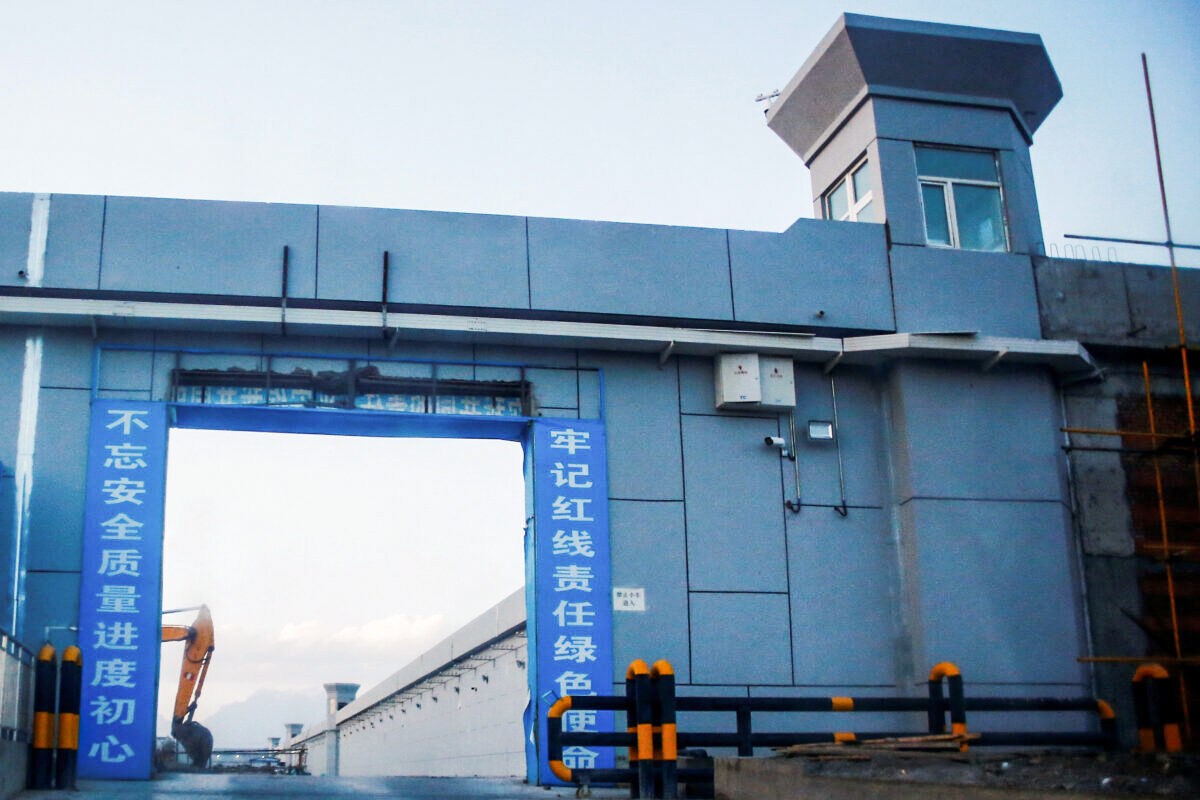Pompeo Versus the CCP
CommentaryMike Pompeo is taking on the Chinese Communist Party (CCP), not for the first time, but in some of his most direct approaches. On Sept. 14 and Sept. 26, the former secretary of state released videos calling on the Chinese people to free themselves of the regime in Beijing. At the root of his message is that the CCP knowingly lies about representing the Chinese people and that the Party is committed to the “foreign, anti-Chinese ideology” of Marxism. Pompeo made the point that the CCP also lies about the United States being a racist country when the “exact opposite” is true. Chinese Americans “contribute immeasurably to our way of life and to America’s experiment in self-government,” he said. Meanwhile, the genocidal CCP perpetuates some of the world’s worst “systemic racism in Xinjiang, Tibet, Inner Mongolia, and elsewhere.” Pompeo said the “most anti-Chinese force in history is the CCP … founded on a bankrupt Marxist ideology that’s killed tens of millions of Chinese people, [and] launched a Cultural Revolution that destroyed thousands of years of Chinese culture.” Attention to the videos increased when the CCP responded with a letter to Pompeo’s current think tank, the Hudson Institute, falsely claiming that the Party was “chosen by the Chinese people” and stands for their interests. It said, “Any attempts to cut off the blood ties between the [CCP] and the Chinese people are doomed to fail.” As usual, the tone-deaf Party is its own worst enemy, feeding the fire that threatens to consume. Pompeo published the letter in a tweet, replying, “The CCP wants me to stop speaking the truth. Ain’t gonna happen.” The Hudson Institute president, John Walters, said of the letter, “No one at Hudson is intimidated by this.” The Washington Times and Townhall published articles sympathetic to Pompeo. By continuing with their simultaneously tragic and farcical responses to the world’s demand for freedom from the CCP, China’s diplomats dig deeper into their hole of disregard for increasing global demands for change. Public opinion in the West is undergoing a sharp shift in opinion against China because it looks more and more like a threat to the very idea of democracy. The CCP’s claims of “blood ties” to the Chinese people go further, coming off as defining the “Chinese people” in terms of a racial hierarchy, in which the Han ethnic group has always led the CCP and China’s state apparatus after the revolution of 1949. Other “Chinese people,” including Tibetans and Uyghurs, for example, merit positions far lower in the regime hierarchy, to the point of relegation to concentration camps ostensibly set up for their “reeducation” into being more Chinese (read: Mandarin speakers and CCP enthusiasts) and less non-Chinese (read: Tibetan and Uyghur speakers, and having religion). A gate of what is officially known as a vocational skills education center is photographed in Dabancheng, Xinjiang Uyghur region, China, on Sept. 4, 2018. (Thomas Peter/Reuters) Overseas Chinese, according to Chinese leader Xi Jinping, should demonstrate allegiance to the Party just as do Chinese in China. It should go without saying that the CCP is racist and wrong in making this claim. Nobody, much less those overseas targeted for their race, owes allegiance to an unelected political party that is more of a mafia or terror organization than a source of legitimate government. Pompeo previously took decisive steps against the CCP, including designating the oppression of Uyghurs a genocide in 2021, which it is by the U.N. definition. In 2020, he closed down China’s consulate in Houston, which was allegedly a hub for technology theft. As a result, China sanctioned Pompeo last year, a badge of honor that could, in other ways, have consequences for his career. A CCP sanction can make it risky for businesses operating in China (many if not most of America’s largest manufacturers) to hire sanctioned individuals or those engaged with them, for example, as a consultant or board member. That might include the loss of major campaign donations from their leadership, including top shareholders. This is one way the CCP attempts to influence U.S. politics—through the influence of business that, in turn, has influence on elected officials. A point that Pompeo has been too diplomatic to say is that the Chinese people have made a huge mistake in allowing the CCP to take over. The world is making the same mistake now. We empowered the CCP with $4.7 trillion of international trade (China’s imports plus exports) that garnered the country a trade surplus of $520 billion in 2020, the latest year of data from the World Bank. The CCP uses that surplus internationally to purchase companies, land, and political influence. Pompeo is one of America’s toughest opponents of the CCP, and the CCP is America’s top national security threat, according to the U.S. government and NATO. So Pompeo is one of those heroes he speaks of and deserves America’s suppo

Commentary
Mike Pompeo is taking on the Chinese Communist Party (CCP), not for the first time, but in some of his most direct approaches. On Sept. 14 and Sept. 26, the former secretary of state released videos calling on the Chinese people to free themselves of the regime in Beijing.
At the root of his message is that the CCP knowingly lies about representing the Chinese people and that the Party is committed to the “foreign, anti-Chinese ideology” of Marxism.
Pompeo made the point that the CCP also lies about the United States being a racist country when the “exact opposite” is true. Chinese Americans “contribute immeasurably to our way of life and to America’s experiment in self-government,” he said.
Meanwhile, the genocidal CCP perpetuates some of the world’s worst “systemic racism in Xinjiang, Tibet, Inner Mongolia, and elsewhere.”
Pompeo said the “most anti-Chinese force in history is the CCP … founded on a bankrupt Marxist ideology that’s killed tens of millions of Chinese people, [and] launched a Cultural Revolution that destroyed thousands of years of Chinese culture.”
Attention to the videos increased when the CCP responded with a letter to Pompeo’s current think tank, the Hudson Institute, falsely claiming that the Party was “chosen by the Chinese people” and stands for their interests. It said, “Any attempts to cut off the blood ties between the [CCP] and the Chinese people are doomed to fail.”
As usual, the tone-deaf Party is its own worst enemy, feeding the fire that threatens to consume.
Pompeo published the letter in a tweet, replying, “The CCP wants me to stop speaking the truth. Ain’t gonna happen.”
The Hudson Institute president, John Walters, said of the letter, “No one at Hudson is intimidated by this.”
The Washington Times and Townhall published articles sympathetic to Pompeo.
By continuing with their simultaneously tragic and farcical responses to the world’s demand for freedom from the CCP, China’s diplomats dig deeper into their hole of disregard for increasing global demands for change. Public opinion in the West is undergoing a sharp shift in opinion against China because it looks more and more like a threat to the very idea of democracy.
The CCP’s claims of “blood ties” to the Chinese people go further, coming off as defining the “Chinese people” in terms of a racial hierarchy, in which the Han ethnic group has always led the CCP and China’s state apparatus after the revolution of 1949.
Other “Chinese people,” including Tibetans and Uyghurs, for example, merit positions far lower in the regime hierarchy, to the point of relegation to concentration camps ostensibly set up for their “reeducation” into being more Chinese (read: Mandarin speakers and CCP enthusiasts) and less non-Chinese (read: Tibetan and Uyghur speakers, and having religion).

Overseas Chinese, according to Chinese leader Xi Jinping, should demonstrate allegiance to the Party just as do Chinese in China. It should go without saying that the CCP is racist and wrong in making this claim. Nobody, much less those overseas targeted for their race, owes allegiance to an unelected political party that is more of a mafia or terror organization than a source of legitimate government.
Pompeo previously took decisive steps against the CCP, including designating the oppression of Uyghurs a genocide in 2021, which it is by the U.N. definition. In 2020, he closed down China’s consulate in Houston, which was allegedly a hub for technology theft.
As a result, China sanctioned Pompeo last year, a badge of honor that could, in other ways, have consequences for his career. A CCP sanction can make it risky for businesses operating in China (many if not most of America’s largest manufacturers) to hire sanctioned individuals or those engaged with them, for example, as a consultant or board member. That might include the loss of major campaign donations from their leadership, including top shareholders.
This is one way the CCP attempts to influence U.S. politics—through the influence of business that, in turn, has influence on elected officials.
A point that Pompeo has been too diplomatic to say is that the Chinese people have made a huge mistake in allowing the CCP to take over.
The world is making the same mistake now. We empowered the CCP with $4.7 trillion of international trade (China’s imports plus exports) that garnered the country a trade surplus of $520 billion in 2020, the latest year of data from the World Bank.
The CCP uses that surplus internationally to purchase companies, land, and political influence.
Pompeo is one of America’s toughest opponents of the CCP, and the CCP is America’s top national security threat, according to the U.S. government and NATO.
So Pompeo is one of those heroes he speaks of and deserves America’s support in the years to come.
Views expressed in this article are the opinions of the author and do not necessarily reflect the views of The Epoch Times.












